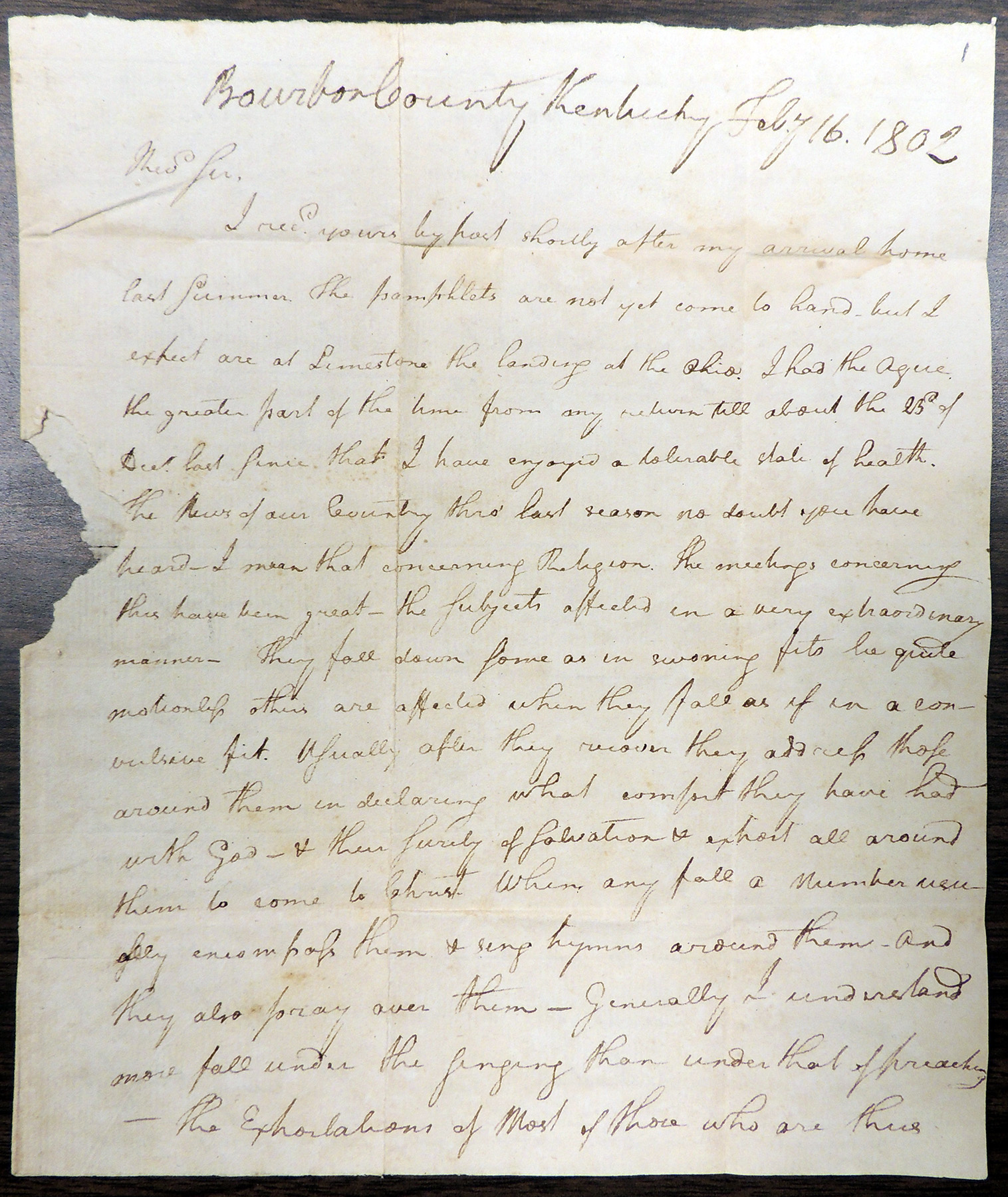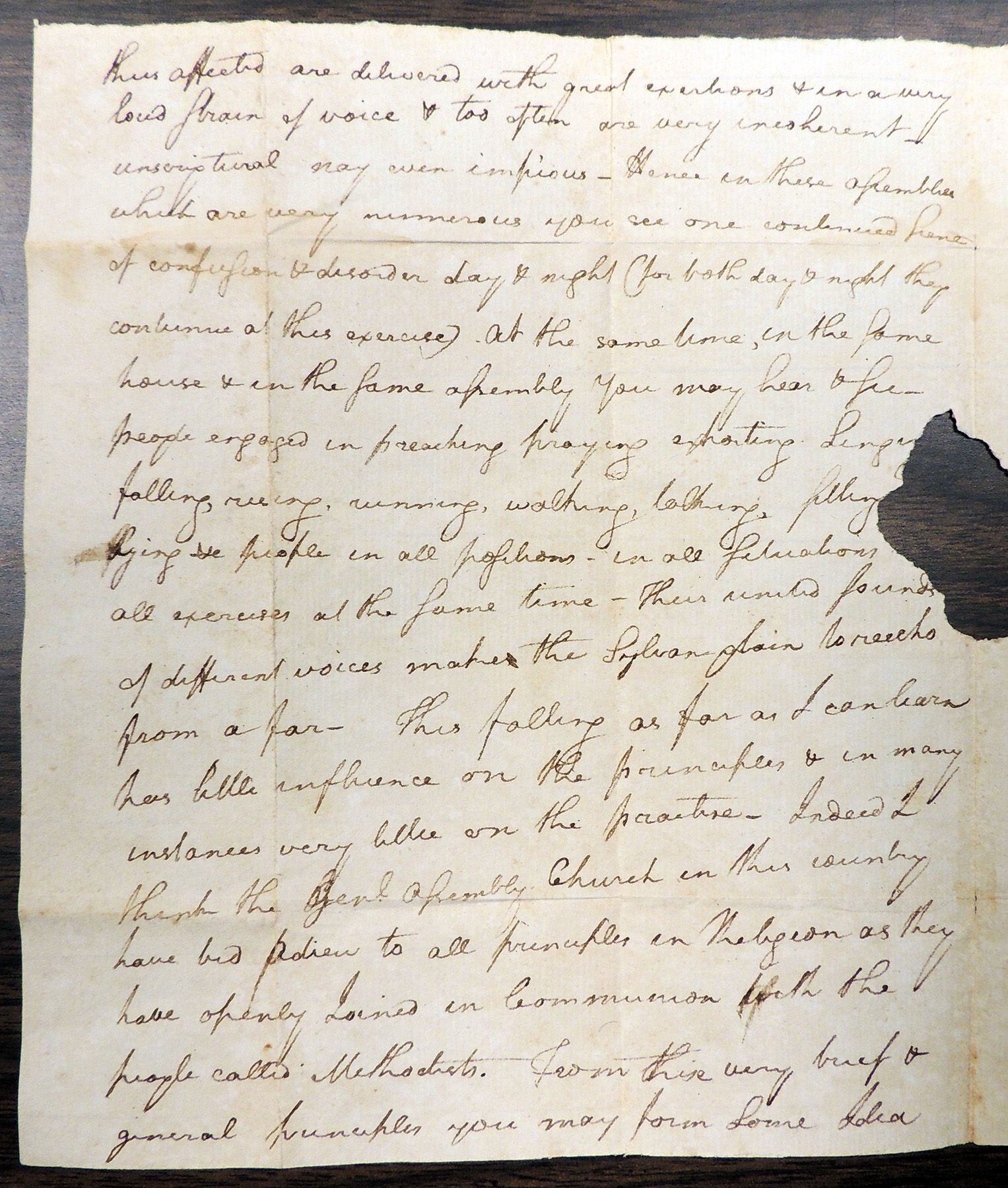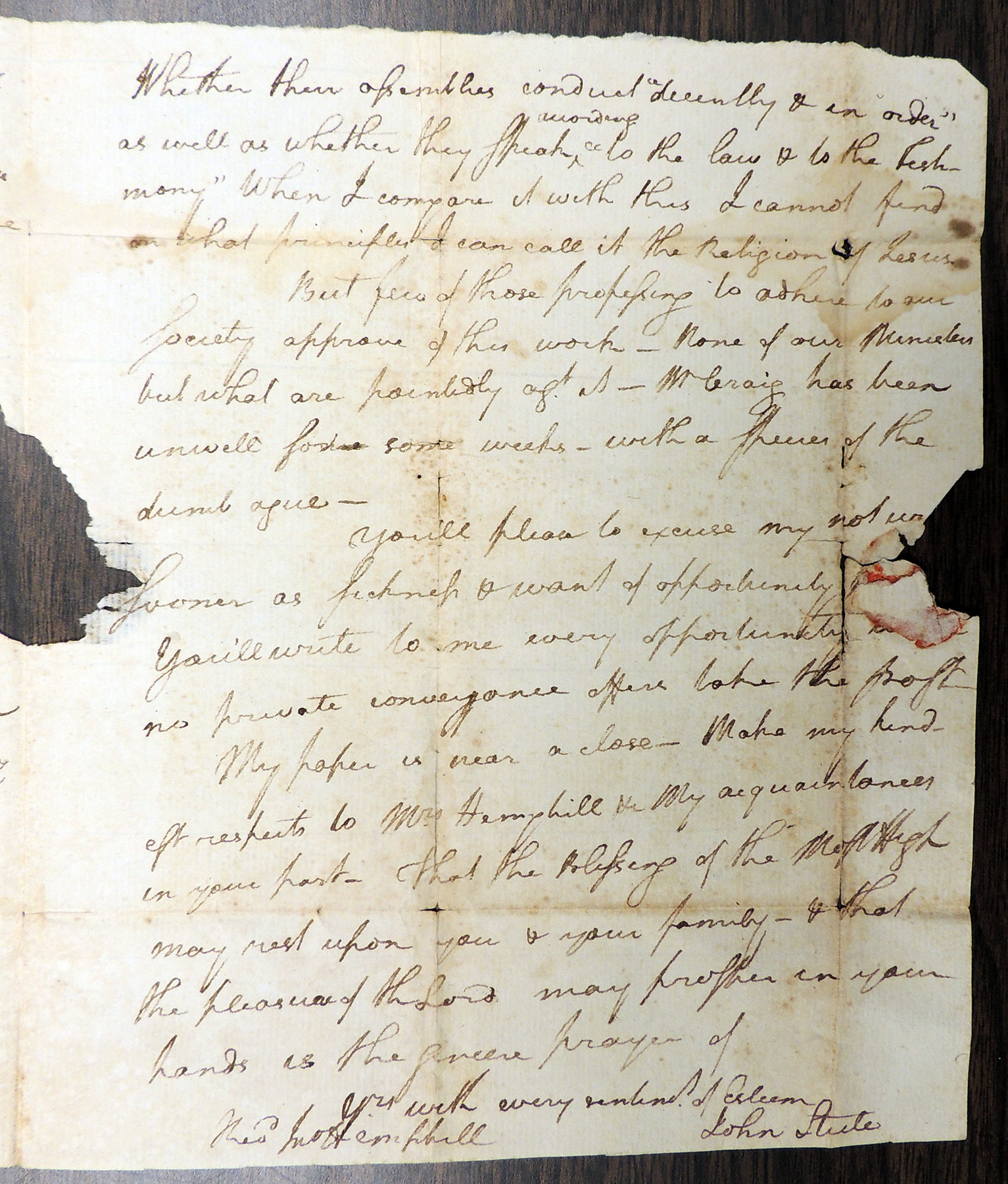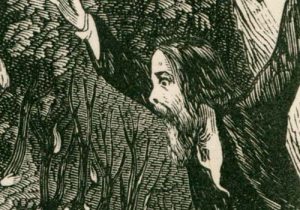News of the Great Revival circulated rapidly through epistolary networks—both in print and in manuscript. Ministerial correspondence, in particular, affords an important index of changing public opinion regarding the bodily exercises. Although most observers later agreed that the jerks originated among Scots-Irish Presbyterians in east Tennessee during the spring and summer of 1803, a handful of revival letters hint at the possibility of multiple points of origin. At first, ministers lacked a name to describe these “convulsive” fits, as this hostile letter from Presbyterian clergyman John Steele attests. Conjectural readings and contextual notes appear in square brackets.
Bourbon County Kentucky February 16, 1802
Reverend Sir,
I received yours by post shortly after my arrival home last Summer. The pamphlets are not yet come to hand, but I expect are at Limestone the landing at the Ohio. I had the Ague the greater part of the time from my return till about the 23d of December last. Since that I have enjoyed a tolerable state of health. The news of our Country thro’ last season no doubt you have heard. I mean that concerning Religion. The meetings concerning this have been great. The Subjects affected in a very extraordinary manner. They fall down some as in swoning fits be quite motionless. Others are affected when they fall as if in a convulsive fit. Usually after they recover they address those around them in declaring what comfort they have had with God, & their surety of salvation & exhort all around them to come to Christ. When any fall a number usually encompass them & sing hymns around them. And they also pray over them. Generally I understand more fall under the singing than under that of preaching. The Exhortations of Most of those who are thus affected are delivered with great exertions & in a very loud strain of voice & too often are very incoherent—unscriptural nay even impious. Hence in these assemblies which are very numerous you see one continued scene of confusion & disorder day & night (for both day & night they continue at this exercise). At the same time, in the same house & in the same assembly you may hear & see people engaged in preaching praying exhorting singing falling, rising, running, walking, talking, sitting lying & people in all positions, in all situations [and] all exercises at the same time. Their united sounds of different voices makes the Sylvan plain to reecho from a far. This falling as far as I can learn has little influence on the principles & in many instances very little on the practice. Indeed I think the General Assembly Church in this country have bid Adieu to all principles in Religion as they have openly Joined in Communion with the people called Methodists. From these very brief & general principles you may form some Idea Whether their assemblies conduct “decently & in order” as well as whether they speak according “to the law & to the testimony.” When I compare it with this I cannot find on what principles I can call it the Religion of Jesus.
But few of those professing to adhere to our society approve of this work. None of our Ministers but what are pointedly against it. Mr. Craig has been unwell for some weeks, with a species of the dumb ague.
You’ll please to excuse my not w[riting] sooner as sickness & want of opportunity [torn]. You’ll write to me every opportunity [torn] no private conveyance Here take the post.
My paper is near a close. Make my kindest respects to Mrs. Hemphill & my acquaintances in your part. That the Blessings of the Most High may rest upon you & your family, & that the pleasure of the Lord may prosper in your hands is the sincere prayer of
Yours with every sentiment of Esteem
John Steele
Reverend John Hemphill
[Addressed:] Reverend John Hemphill
Chester County
Fishing Creek
South Carolina
Mr. Jameson
[Endorsed in a later hand:] From Rev. Steel 1802—the revival
Source
John Steele to John Hemphill, February 16, 1802, SC 2755, Manuscripts and Folklife Archives, Special Collections Library, Western Kentucky University, Bowling Green.




